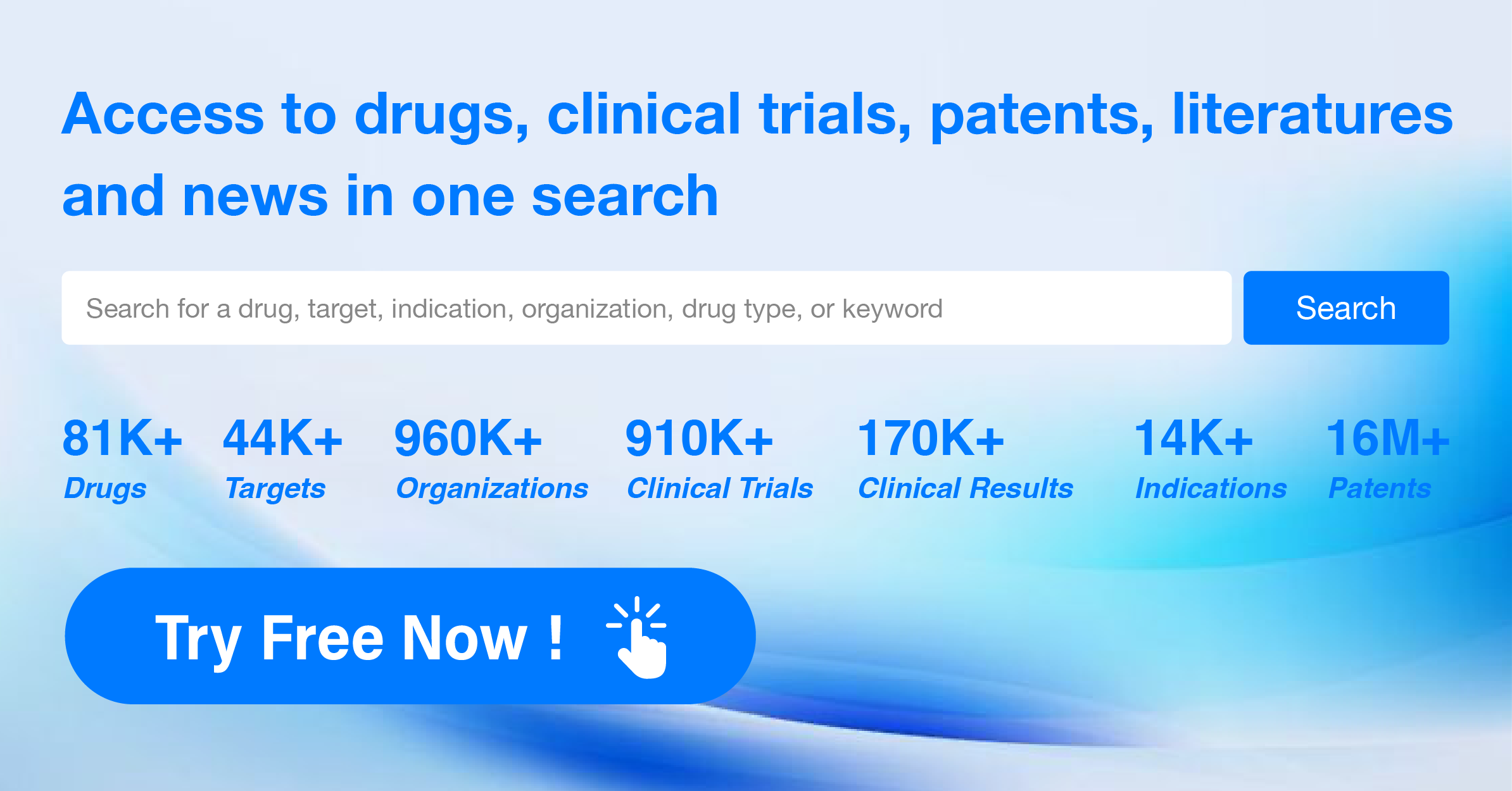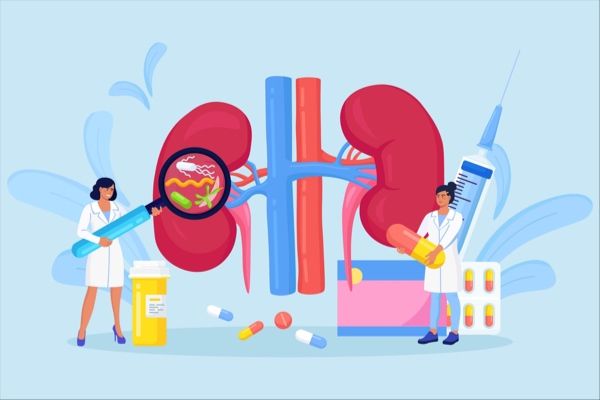Pharma Frontiers: Daily Digest of Global Pharmaceutical News - April 27
1.ImmunityBio's potential blockbuster therapy extends OS in patients with refractory cancer
On April 26th, ImmunityBio announced positive overall survival (OS) results from their QUILT 3.055 study for their IL-15 superagonist Anktiva (nogapendekin alfa inbakicept) in patients with non-small cell lung cancer (NSCLC) who progressed after treatment with immune checkpoint inhibitors and standard chemotherapy. These results further strengthen ImmunityBio's confidence in Anktiva as the next generation of immunotherapy with potential efficacy across various solid and hematologic tumor types. This week, the U.S. FDA approved Anktiva for the treatment of adults with non-muscle invasive bladder cancer (NMIBC) who are unresponsive to bacillus Calmette-Guérin (BCG) and have carcinoma in situ (CIS). In NSCLC patients who are refractory or resistant after checkpoint inhibitor therapy, Anktiva in combination with the same checkpoint inhibitors significantly extended OS and restored the effectiveness of checkpoint inhibitors. Clinical benefits were observed regardless of the patients’ PD-L1 expression status, consistent with Anktiva’s mechanism of activating and expanding natural killer cells and stimulating CD8 positive T cells. The extension of survival in NSCLC patients after checkpoint inhibitor failure aligns with findings of durable complete remissions in NMIBC patients who failed BCG treatment. ImmunityBio has scheduled a meeting with the FDA in June to discuss overall survival results for both PD-L1 negative and positive patients, as well as regulatory submission pathways for second-line and third-line treatments in NSCLC patients. The company will discuss the positive overall survival data of patients involved in the QUILT 3.055 trial, which includes multiple tumor types, in an investor conference call on April 26th. This call will also cover preparations for the recent market authorization of Anktiva for NMIBC.
2.Henlius Biotech's Trastuzumab Biosimilar, HERCESSI™ (HLX02), Approved by the FDA for Marketing
On April 26, Henlius Biotech announced that its independently developed and manufactured trastuzumab biosimilar, HERCESSI™ (HLX02), has received FDA approval for marketing. It is approved for adjuvant treatment of HER2, HER2, and HER2-overexpressing metastatic gastric or gastroesophageal junction adenocarcinoma. This marks the first Henlius product to be commercialized in the United States through FDA approval. HERCESSI™ the monoclonal antibody biosimilar, had been previously approved in China, the European Union, and the United States, with marketing approvals granted by the European Commission and the NMPA in July and August of 2020, respectively. In 2021, Henlius Biotech signed an exclusive development and commercialization licensing agreement with Accord US for the rights to HERCESSI™ in the United States and Canada. The FDA approval was primarily based on comprehensive analytical results, preclinical, and clinical study data submitted by Henlius Biotech. Since 2015, Henlius has conducted a series of head-to-head comparison studies on HERCESSI™, including quality comparison studies, Phase I clinical trials, and international multicenter Phase III clinical studies. These studies have demonstrated that HERCESSI™ is highly similar to the originator trastuzumab in terms of quality, safety, and efficacy. In 2023, HERCESSI™ achieved total annual sales revenue of RMB 2.737 billion, with overseas market sales further increasing to about RMB 0.926 billion, representing a year-over-year growth of 162.3%. As a representative of domestic biopharmaceutical 'going global,' HERCESSI™ has been approved in more than 40 countries and regions, making it the domestically produced biosimilar approved in the largest number of countries and regions. With its approval in the US, the potential for the overseas market has further expanded.
3.Sinovac Biotech's application for the commercialization of its adsorbed tetanus vaccine has been accepted!
On April 26th, the official website of the Center for Drug Evaluation (CDE) of China's National Medical Products Administration publicized that Sinovac Biotech's application for the commercialization of its adsorbed tetanus vaccine has been accepted. According to a previous press release by Sinovac Biotech, the Phase 1/3 clinical trial data for this adsorbed tetanus vaccine had been unblinded, showing that the vaccine is safe and immunogenic. Preliminary results demonstrate that 30 days post-vaccination, the seroconversion rate reached 99.48% in Phase 3 volunteers, meeting the non-inferiority standard, with a geometric mean concentration (GMC) showcasing statistically significant superiority. Tetanus is an infectious disease, most commonly associated with physical injuries. When Clostridium tetani enters the body through breaks in the skin or mucous membranes, it can thrive in an anaerobic environment and produce exotoxins, leading to symptoms such as muscle spasms, intense pain, breathing difficulties, and in severe cases, death. The tetanus is used for post-injury prevention of tetanus as well as prophylaxis in individuals at high risk of exposure due to potential injuries. According to the publicly available information from Sinovac Biotech, the Phase 1/3 clinical studies for their tetanus included 1260 participants, divided into two groups in a 1:1 ratio, each receiving a dose of the test vaccine or a control vaccine. Preliminary analysis indicates that the vaccine is safe, with mostly mild adverse reactions and no severe adverse events related to the vaccine. Within 30 days post-vaccination, there was no statistically significant difference in the incidence of vaccine-related adverse events between the test and control groups. Thirty days after vaccination, the seroconversion rate of the test vaccine (i.e., the tetanus) was 99.48%, comparable to the seroconversion rate of the control vaccine, attaining the non-inferiority standard; with a GMC of 4.74, which is higher than the GMC of the control vaccine (3.63), and a GMC ratio of 1.306, demonstrating statistically significant superiority.
4.Roche's Major Antibody Therapy Nearly Completely Prevents Disease Relapse
Recently, Roche’s Genentech announced that their significant antibody therapy, Ocrevus (ocrelizumab), achieved positive data in phase 3 clinical study OCARINA II for treating Relapsing Multiple Sclerosis (RMS) or Primary Progressive Multiple Sclerosis (PPMS). The results demonstrated that just two subcutaneous injections of Ocrevus per year nearly completely suppressed clinical relapses and brain lesions. Regulatory applications for the subcutaneous formulation of Ocrevus are currently under review by regulatory authorities in Europe and the US, with hopes for approval this year. Updated long-term follow-up results showed that subcutaneous Ocrevus injection (920 mg; n=236) nearly completely inhibited relapse activity during the treatment phase (97.2% of patients did not experience a relapse). The annualized relapse rate at 48 weeks of magnetic resonance imaging (MRI) was 0.04, with the vast majority of patients having no Gd+T1 lesions and no new/enlarged T2 lesions, which are indicators of active inflammation and disease burden, respectively. Additionally, in exploratory patient-reported outcome measures, patients (n=52) reported high levels of satisfaction (92.3% were satisfied or very satisfied) and convenience (90.1% found it convenient or very convenient). Further data continue to demonstrate the safety of Ocrevus subcutaneous injections aligns with the safety profile established for Ocrevus intravenous infusions. No new safety signals were observed. The most common adverse event in the Ocrevus subcutaneous injection group was injection reactions (51.5% of all treated patients), including erythema (34.8%), pain (17.2%), swelling (9.4%), and itching (5.6%), all of which were mild or moderate and did not lead to treatment discontinuation. Ocrevus is a humanized monoclonal antibody designed to target CD20-positive B cells, a specific type of immune cell believed to be a key contributor to myelin and axonal damage.
5.Vistagen reports positive Phase 2 clinical results for innovative small-molecule therapy
On April 26, Vistagen announced that its investigational therapy PH15 achieved positive results in an ongoing Phase 2A clinical trial. PH15 is a pherine nasal spray in development, aimed at improving psychomotor impairment caused by mental fatigue. In sleep-deprived study participants, PH15 demonstrated statistically significant improvements in reaction time compared to placebo and caffeine. This randomized, double-blind, placebo-controlled, crossover Phase 2A clinical trial was designed to assess the efficacy, safety, and tolerability of intranasal administration of PH15 in improving psychomotor performance. The results indicated that at all test points, the 1.6 microgram dose of the PH15 nasal spray significantly quickened average reaction times compared to the placebo nasal spray (p<0.001). Additionally, during test periods at midnight and 3:00 AM, when fatigue levels were most severe, PH15 significantly outperformed oral caffeine in improving reaction times (p<0.001). PH15 was well-tolerated with no serious adverse events reported. Pherines represent a new class of neurocircuitry-focused drug candidates, administered intranasally to treat psychiatric and neurological disorders. Their mechanism of action is unique, activating nasal chemoreceptors and transmitting signals through neural pathways to specific brain regions, distinctly different from all approved drugs' mechanisms. This novel nasal-to-brain mechanism offers rapid onset of effects and differentiated safety features without the need for systemic absorption or direct central nervous system entry. To date, all five pherine compounds in Vistagen’s clinical-stage neuroscience pipeline have demonstrated favorable safety profiles in completed clinical trials.
6.Innovent Biologics' ADC candidate is being considered for breakthrough therapy designation for the treatment of gastric cancer!
On April 25th, the official website of China's Center for Drug Evaluation (CDE) of the National Medical Products Administration announced that Innovent Biologics' IBI343 is proposed for inclusion among breakthrough therapy designations. It is intended for indications in patients who have received at least two prior systemic treatments for advanced gastric or gastroesophageal junction adenocarcinoma positive for Claudin (CLDN) 18.2 expression. According to publicly available information from Innovent Biologics, IBI343 is an antibody-drug conjugate (ADC) targeting Claudin18.2. This product is currently undergoing a Phase 3 clinical trial targeting Claudin18.2 positive, HER2 negative gastric cancer. Claudin is a critical protein found in tight junctions of normal tissues and has four transmembrane domains. It is involved in the regulation of paracellular permeability and electrical conductance. Claudin18.2 is highly expressed in gastrointestinal cancers, including gastric cancer, making it an effective target for the treatment of solid tumors like gastric and pancreatic cancer.
IBI343 is the first ADC candidate from Innovent Biologics' pipeline to enter the clinical stage, targeted at Claudin18.2, and features glycosylated site-specific conjugation of the cytotoxic drug exatecan. Upon binding to tumor cells expressing Claudin18.2, the ADC undergoes Claudin18.2-dependent internalization, releasing the toxic drug to cause DNA damage and induce tumor cell apoptosis. The liberated toxic drug can also diffuse through the plasma membrane to kill adjacent tumor cells, displaying a bystander effect.
According to preclinical data presented by Innovent Biologics at the 2024 American Association for Cancer Research (AACR) annual meeting, IBI343 demonstrated effective Claudin18.2-specific cytotoxic activity in vitro across various tumor cell lines with varying expression levels and showed substantial tumor-suppressive activity in multiple human tumor xenograft mouse models. Additionally, the glycosylation-based site-specific conjugation technology significantly enhances the stability of the entire ADC. The product displayed good safety profile in GLP toxicology studies in cynomolgus monkeys and was well-tolerated at doses up to 30mg/kg.
7.Regeneron Forms Collaboration on Extrahapatic Targeted Gene Editing Therapy
On April 26, Regeneron and Mammoth Biosciences announced a collaboration agreement worth an initial $100 million. The two companies will jointly research, develop, and commercialize in vivo CRISPR gene editing therapies for a variety of tissue and cell types. Regeneron is developing adeno-associated virus (AAV) vectors using antibody-based targeting technologies to enhance the delivery of gene therapy payloads to specific tissues and cell types. Mammoth is developing novel ultracompact nucleases and related gene editing systems, which offer multiple editing functionalities but are significantly smaller in size compared to other CRISPR-based systems, including the first-generation Cas9 nucleases. By combining Regeneron’s expertise in AAV and antibody engineering with Mammoth’s proficiency in ultracompact gene editing systems, the two teams aim to develop disease-modifying drugs that can be delivered to tissues beyond the liver, where most gene editing therapies currently target. According to the terms of the agreement, Mammoth will receive $100 million, including an upfront payment, and is eligible for up to $370 million per target in development, regulatory, and commercial milestones. Additionally, Mammoth has the option to co-fund and share the majority of the revenue from the collaborative projects as an alternative to milestone and other payments. Furthermore, during a five-and-a-half-year term, Regeneron will have broad rights to use Mammoth’s editing technology, excluding certain targets, with the option to extend these rights for an additional two years by paying further research extension fees. The partners will jointly select and study collaborative targets, after which Regeneron will lead their development and commercialization.




